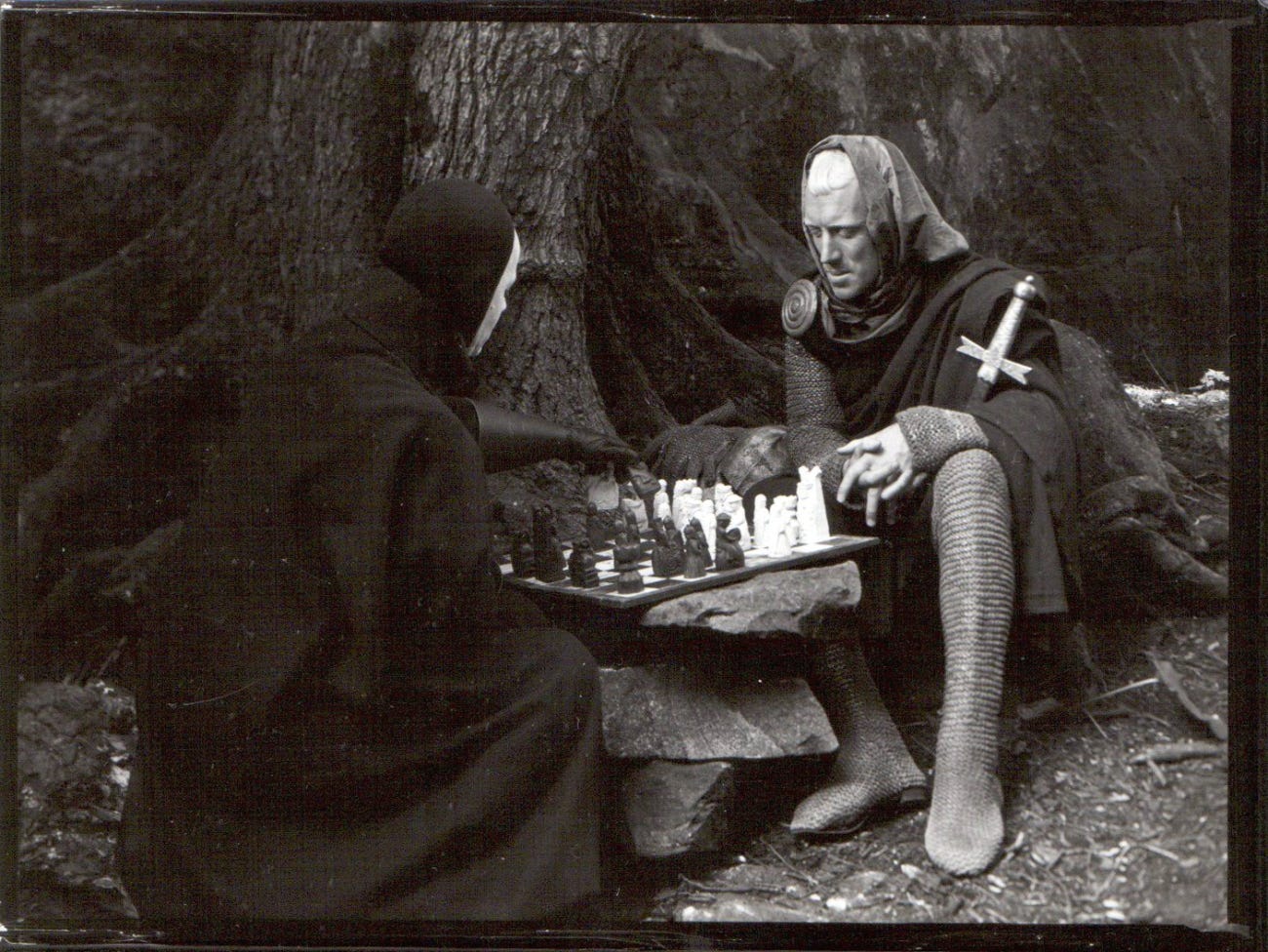Swedish Filmmaker Ingmar Bergman Throws Curveball; Left Behind Script for Unproduced "Baseball" Movie
Script found among the papers the late filmmaker donated to The Ingmar Bergman Archives.
Swedish filmmaking legend Ingmar Bergman died in 2007 at 89, on the small island of Faro on the Baltic coast of Sweden, leaving behind an archive covering 65 years of manuscripts, photos, and correspondence. Bergman’s output includes 60 films for cinema and TV, and 172 theatre productions. The New York Times obituary described Bergman's films as dealing "with pain and torment, desire and religion, evil and love," so it came as a great surprise when a script for an unproduced baseball movie was found among the papers and materials that he’d donated to the Ingmar Bergman Archives.
Titled “Torment,” the two hundred and forty-five page film script is based on a single event: the flight of a baseball as it leaves the pitcher's hand. The entire film revolves around the solitary figure of Sven Bjorkman, a journeyman pitcher whose baseball uniform bears no team affiliation. In the fraction of a second it takes for the ball to cross the plate, Bjorkman’s life - his dominating father, broken marriage, rotten kids, disastrous decisions, unfulfilled promise, and crisis of faith - unfolds across the screen.
"Who could have imagined Bergman, living on a desolate, chilly island off of Sweden, taking an interest in any sport, let alone baseball," said David Denby, the New Yorker's chief movie critic. "Bergman's entire worldview is about the isolation and fragility of modern man, sans belief, hope, or love. The image of Bergman watching Sports Center or poring over box scores, or even reading a Philip Roth book, is hard to conjure. But if you strip the game to its core -- the batter standing alone, the fate of the world pressing down upon him, with little but a stick of wood standing between triumph and oblivion, it begins to make sense."
The script gives few clues regarding Bergman's understanding of the game itself. He sets the scene as follows: "Location: a perimeter of precisely arranged earth, surrounded by a Bosch-like cinemascape of spectators living on the precipice of hope and despair. At the center is a raised patch of dirt (they call it the mound). It is a place as isolated and as indifferent to life as a crater on the moon. Atop this patch looms a large man in a nondescript baseball uniform. His dark, hooded features glower menacingly from beneath the bill of his dirt-stained cap. He peers in and prepares to unleash a white orb toward a man standing 66.6 inches away. The camera slowly pans across this man's back -- the letters B J O R K M A N appear. The slow pan underscores the duality of the Bjorkman character -- he is both everyman and superman. But one thing is made very clear: whatever the outcome - a strikeout, a bloop single, the game-winning home-run - one day he too will be laid into the cold earth, his triumphs and failures blurring into an undifferentiated black mass of meaninglessness."
"I can't imagine anyone but Bergman fusing religion, death and existentialism with baseball and actually putting fannies in the seats," said Ron Shelton, writer and director of "Bull Durham" and a former minor league baseball player. "That's a film I would have loved to have seen. In fact, it's a film I want to make, if we can secure the rights. I can see filming it in Stockholm, in the dead of winter, in an abandoned stadium, set against a frigid, remorseless sky. If you played four years of minor league ball without any realistic prospect of making it out, you know exactly what this feels like.”
“Torment” ends with a typical Bergmanesque flourish: "Just before the white orb reaches the awaiting batter, the screen goes black, followed by five seconds of complete silence. Then, a procession of dirge-like notes sound: dah-dah-dah-dah-dah-dah. And up from the inky depths emerges a collective groan: C-H-A-R-G-E. It is both a death rattle and a distant bleat of hope for a better world."





